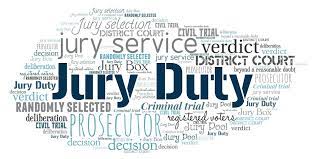
It was hard to turn on the TV or read a news paper in February 2023 without hearing about the Alex Murdough case. Murdough, a lawyer from a well-known Southern family, was on trial for the murder of his wife and son.
The story received massive media coverage and had all the makings of a blockbuster movie: mystery, forensic science, family drama and financial shenanigans. Maybe a movie is in the works – but if it is, it will have to outdo the drama in the Netflix documentary and the podcast.
The trial lasted 6 weeks with both the prosecution and defense presenting voluminous evidence. In addition to hearing testimony from a long list of witnesses, jurors were asked to make sense of complex information derived from cell phone records. Given the complexity of this evidence, and limitations to what conclusions can be drawn from it, some expected jurors to have a difficult time reaching a verdict.
They didn’t. Jurors reached a verdict in just 45 minutes. In the immediate reporting that followed the delivery of their guilty verdict, some reporters expressed surprise at how quickly a decision was reached. Guessing about the how and why included assertions that jurors had made up their mind well before the closing arguments and that Murdaugh’s decision to take the stand is what did him in.
Juror Craig Moyer said only two of the 12-member jury initially believed Murdaugh was not guilty and one who was undecided. Interestingly, one juror was removed shortly before the defense’s closing arguments. Legal experts suggested the quick decision shows “the jury didn’t buy that it could be anyone else.”
Another likely reason the jury reached a quick decision: Murdaugh admitted he lied. At that point, jurors were probably less likely to go through every piece of evidence. They simply went with their gut.
Right to Trial By Jury
The right to trial by jury in criminal cases is guaranteed by the Sixth Amendment to the U.S. Constitution, as well as the laws of every state. In theory, a jury ensures the determination of guilt or innocence is a product of unbiased analysis of evidence presented in a court of law. Juries are supposed to be comprised of a cross-section of the population, giving rise to the notion that defendants are judged by a jury of their peers.
The process of creating a jury, however, is complicated and nuanced. The jury formation process begins with notification of a pool of potential jurors. Jurisdictions send notices to residents who are registered to vote, have a driver’s license or both. Once notified, potential jurors can request to be excused from jury duty.
Attorneys and judges then conduct the voir dire process with the remaining pool of potential jurors. During this process, potential jurors respond to questions posed by both sides so that a determination can be made of their suitability to serve in the case. Voir dire is important because errors during jury selection can be grounds for appeal in criminal cases.
Juror Bias
What kinds of questions do potential jurors face? Questions can touch on jurors’ occupations, educational background and training, habits, interest, and social activities. They can also include questions about their experiences and feelings toward the legal system as well as their opinions, beliefs and values. The answers to these questions help surface the filters through which a juror will view the evidence that is presented.
Jurors’ perceptions are also influenced by the media coverage a case receives. What’s reported in the. media shapes how a juror interprets what’s presented in the courtroom. How a defendant is portrayed in the media, therefore, influences juror’s perception of guilt.
The law provides certain remedies in response to the effect of the media on jurors. These include changing the venue or moving the case to a different jurisdiction, providing continuances and sequestering the jury. Research has shown that claims of jury bias are rarely sufficient to prompt judicial action.
Faith in the System
Scholars have been making recommendations for ways to improve the jury process for at least 30 years. Currently, juries operate under procedural rules that were established hundreds of years ago. It’s doubtful that those rules contemplated the realities of modern society. It’s hard say that the pervasive coverage of the Murdaugh case influenced the jury’s final decision. It’s equally hard to assert that it didn’t.
It may be that all the evidence, and Murdaugh’s own admission of lying, were sufficient to convince the jury of his guilt. But it could likewise be that the jury was not entirely impartial. In order for Americans to have faith and confidence in the verdicts in jury trials, defendants must have due process protections afforded under the Constitution and this includes ensuring jurors are not influenced by media messaging.